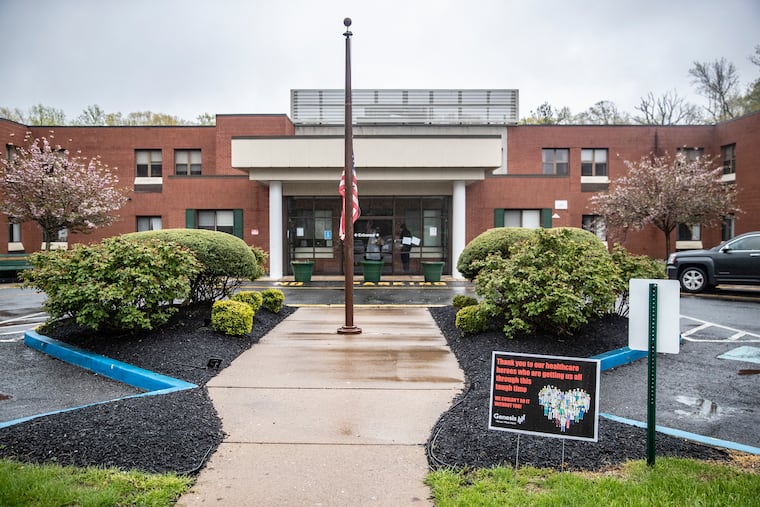Genesis Healthcare gets private-equity investment for nursing homes, will lose PowerBack facilities
The investment will effectively put the Kennett Square company back under private-equity control.

Genesis Healthcare Inc., a major national nursing home operator that has long struggled financially, announced Wednesday that it will delist its shares from the New York Stock Exchange and receive an investment that could give a New York private-equity firm control of the Kennett Square company.
ReGen Healthcare LLC, a new private-equity-backed firm, has agreed to invest $50 million in Genesis, with the possibility of investing $25 million more by April 15. If both deals are completed, ReGen would control 43% of Genesis’s shares.
The investment by ReGen is needed to ensure that Genesis doesn’t run out of cash for its day-to-day operations. The move also marks a significant turn in the history of Genesis, which was founded in 1985, and has cycled through public and private ownership over the last 20 years, each stage piling on debt.
“The severity of the pandemic dramatically impacted patient admissions, revenues and costs, compounding the pressures of our long-term, lease-related debt obligations,” said Genesis chief executive Robert Fish, who replaced longtime leader George Hager as CEO in January.
Advocates for the elderly and unions that represent nursing home workers have decried the impact of private equity ownership on the nursing-home sector. A recent study by assistant professor Atul Gupta of the University of Pennsylvania’s Wharton School and others found that going to a nursing home owned by a private-equity firm slightly increased the chance of a death during the stay and in the following three months.
“This latest news from Genesis Healthcare is a symptom of the core problem: The bottom line continues to be more important than our seniors and the workers who care for them,” Carlos Rivera, vice president for nursing homes at SEIU Healthcare Pennsylvania, said in an email.
“The fact that this is happening during a pandemic that has killed so many is gut-wrenching,” he said. “Caregivers and seniors should not be faced with the type of uncertainty these changes bring.”
In the deal, ReGen received two seats on the Genesis board. The chairman’s seat went to David Harrington, a veteran health-care executive. Harrington is cofounder and managing partner of Pinta Capital Partners, a New York private equity firm that specializes in nursing homes and other health-care sectors.
The other seat went to John Randazzo, who is a senior advisor to private equity giant Warburg Pincus and executive chairman of a large dermatology company in Florida that is backed by Griffin Partners, a private-equity firm in San Francisco.
The arrangement with ReGen also requires Genesis to stop listing its shares on the New York Stock Exchange, where they have traded without success since early 2015. On Wednesday, the shares closed at 50 cents, down 38%. The shares are expected to continue trading over-the-counter in the OTC Pink Open Market, but the company will no longer provide financial reports to the U.S. Securities and Exchange Commission after filing a final annual report by March 15.
Under a third component of the restructuring, Genesis’s landlord at 51 facilities in nine states will either sell out or bring in new companies to operate the sites, including 17 in New Jersey and seven in Pennsylvania. That amounts to more than a third of Genesis locations in those two states, where Genesis employs 9,300.
The landlord, Welltower, a Toledo, Ohio, real estate investment trust, announced separately that it was bringing in ProMedica, a nonprofit health-care system also based in Toledo, to take over Genesis’ nine PowerBack sites that are focused on short-term rehabilitation. Those sites, which are mostly in the Philadelphia area, will be rebranded ProMedica Senior Care.
Welltower became involved with Genesis in 2011 when it bought Genesis’ real estate from earlier private-equity owners for $2 billion and leased the facilities back to Genesis. As part of the latest maneuver, Welltower will let Genesis off the hook for some of its debt while increasing its ownership in Genesis from 6% to 15%.
At the end September, Genesis had a massive debt load of $1.5 billion and owed an additional $2.2 billion under leases with numerous landlords. The company had $4.6 billion in revenue in 2019. In all, Genesis operates 325 nursing homes and assisted-living facilities in 24 states.